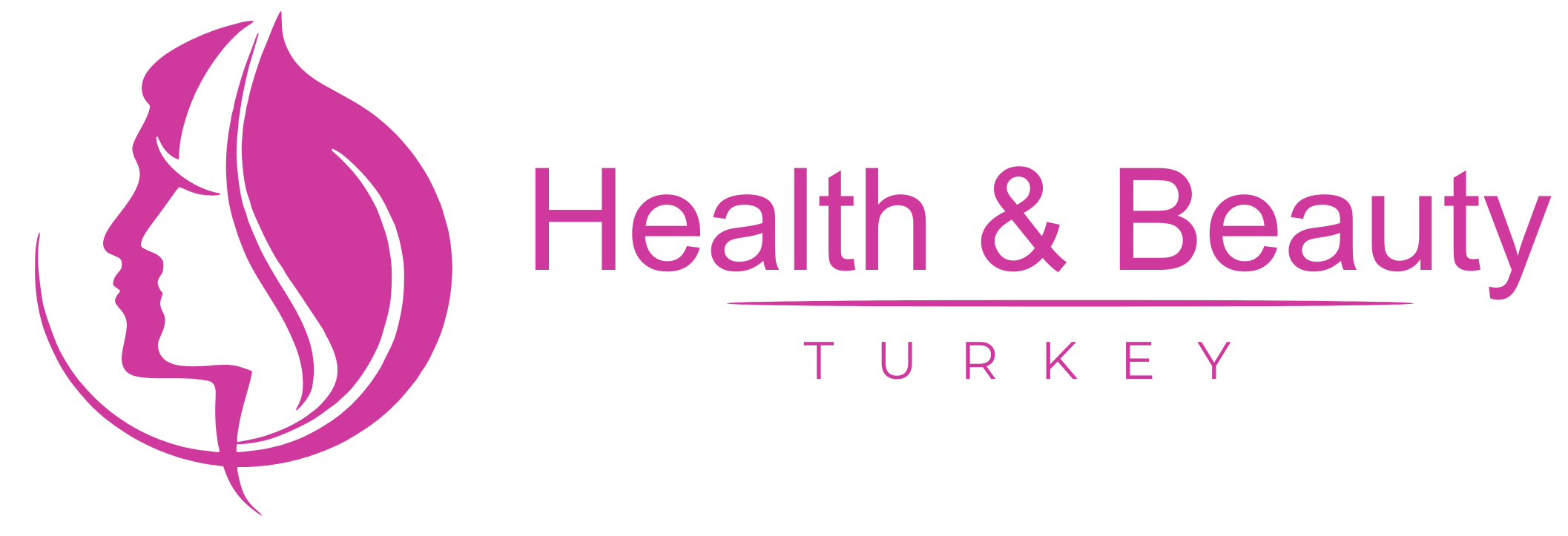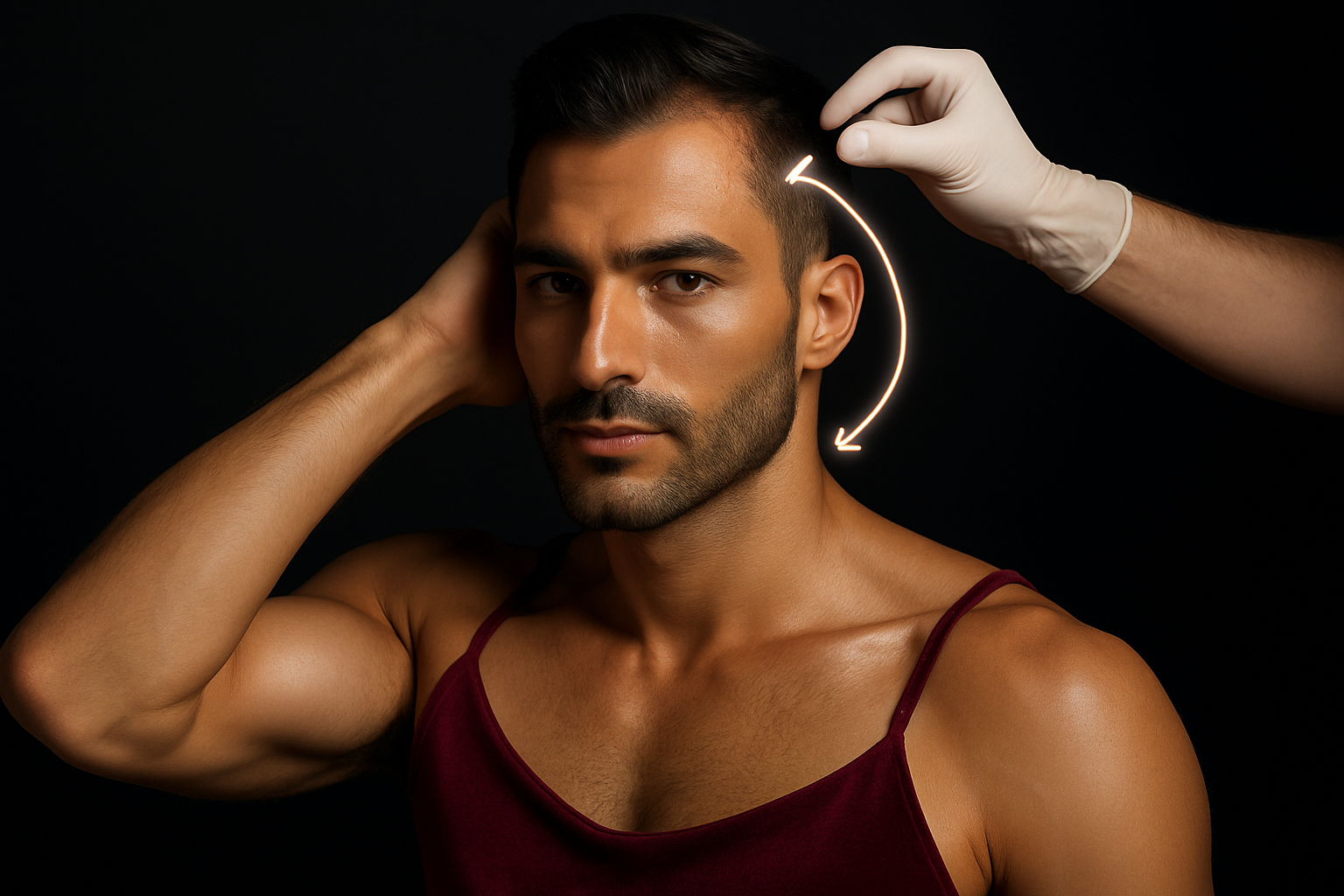Hair Transplant in Turkey: Your Comprehensive Guide to Cost, Tips, and Latest Technologies
Hair loss, whether due to genetics, hormones, or certain medical conditions, is a concern for many worldwide. With increasing awareness of available treatments, Turkey has become a leading global destination for hair transplantation, attracting thousands of patients seeking effective and long-lasting solutions for baldness or hair thinning. At “Health & Beauty Turkey”, we fully understand the importance of this step in everyone’s life and strive to provide a comprehensive and safe treatment experience, supported by the latest technologies and world-class medical expertise.
In this comprehensive guide, we will take you on a detailed journey to explore the world of hair transplantation in Turkey, starting from understanding the causes and influencing factors, through how to choose the ideal candidate, to detailed procedures, innovative treatment techniques, and practical tips, while highlighting what distinguishes our center, especially regarding insurance against complications of medical tourism.
Causes and Factors Affecting Hair Loss
Before diving into the details of hair transplantation, it is essential to understand the underlying causes of hair loss, which helps in determining the most suitable treatment.
Common Causes of Hair Loss:
- Androgenetic Alopecia (Genetic Baldness): This is the most common cause, influenced by genes and male hormones (androgens). It typically appears as a receding hairline and thinning on the crown in men, and diffuse thinning on the crown in women.
- Hormonal Changes: Pregnancy, childbirth, menopause, or thyroid problems can lead to temporary or permanent hair loss.
- Medical Conditions: Certain conditions like Alopecia Areata, which causes patchy bald spots, or fungal infections of the scalp can be a cause.
- Medications and Treatments: Some medications used for cancer treatment (like chemotherapy), arthritis, depression, and heart conditions can cause hair loss as a side effect.
- Stress and Psychological Pressure: Severe stress or emotional trauma can lead to a type of hair loss called Telogen Effluvium.
- Nutritional Deficiencies: Lack of essential vitamins and minerals such as iron, zinc, and vitamin D can negatively affect hair health.
- Excessive Hairstyles: Constant pulling of hair in tight hairstyles or the use of harsh chemicals can cause Traction Alopecia.
Risk Factors:
- Age: As age progresses, hair loss becomes more common.
- Gender: Men are more prone to androgenetic alopecia than women.
- Family History: Having a family history of hair loss increases the likelihood of experiencing it.
- Health Status: Certain chronic or acute illnesses can increase the risk of hair loss.
Symptoms:
The symptoms of hair loss vary depending on the cause and may include:
- Gradual thinning of hair on the top of the head.
- Receding hairline at the forehead.
- Circular or irregular bald patches.
- Sudden shedding of large amounts of hair.
Diagnosis:
Diagnosis is based on medical history and physical examination. The doctor may request blood tests to check for vitamin deficiencies or thyroid problems, or in some cases, a scalp biopsy.
Latest Updates in Understanding Hair Loss:
Recent research indicates a deeper role of the scalp’s microbiome in hair follicle health, in addition to exploring promising genetic and cellular therapies, which may open new avenues in the near future for radical hair loss treatment.
The Ideal Candidate for Hair Transplantation
Hair transplantation is an effective solution for many people, but it is not suitable for everyone. Determining if you are a good candidate depends on several factors.
Who are the good candidates?
- Individuals experiencing hereditary hair loss: These are the most common cases, where strong hair follicles are transferred from donor areas (usually the back and sides of the head) to the balding areas.
- Men and women with dense donor areas: Hair density in the donor area is a crucial factor for the success of the procedure.
- Individuals with realistic expectations: Candidates should understand that hair transplantation aims to restore a natural appearance, and the goal may not be to regain 100% of the original hair density.
- Those who have passed the early stages of hair loss: It is often recommended to wait until the hair loss pattern stabilizes for men to accurately determine the new hairline.
- Individuals who have experienced hair loss due to burns or injuries: Hair transplantation can help restore hair in these areas.
Who may not be a good candidate?
- Individuals with diffuse and undefined hair loss: Hair transplantation may not be the optimal solution in these cases.
- Those with a history of poor wound healing: This can affect the healing process and the results of the procedure.
- People with active scalp skin conditions: These conditions must be treated first.
- Those who do not have sufficient donor areas: This limits the number of follicles that can be transplanted.
- Those with unrealistic expectations: The patient should be aware of what to expect from the procedure.
Preparing for Hair Transplantation: Before Traveling
Good preparation plays a vital role in ensuring the safety of the procedure and achieving the best possible results.
Medical Examinations:
Before traveling, you will often be asked to undergo some basic tests to ensure you are in good health and fit for the procedure, such as:
- Complete Blood Count (CBC): To detect any blood-related issues.
- Blood Clotting Tests: To assess the blood’s ability to clot.
- Kidney and Liver Function Tests: To assess the health of these vital organs.
- Virus Screening (e.g., Hepatitis B & C, HIV): As a precautionary measure.
- Other tests as determined by your doctor based on your health history.
Health Advice and Lifestyle Adjustments:
- Discontinue Anticoagulant Medications: Such as aspirin and non-steroidal anti-inflammatory drugs (NSAIDs) one to two weeks before the procedure, and after consulting your doctor.
- Quit Smoking: It is highly recommended to quit smoking or significantly reduce it at least two weeks before and after the procedure, as smoking negatively affects blood flow to the scalp and hinders the healing process.
- Avoid Alcohol Consumption: It is advisable to avoid alcohol a week before the procedure.
- Healthy Nutrition: Follow a balanced diet rich in vitamins and minerals to support overall hair and body health.
- Psychological Preparation: Discuss your concerns and expectations with your doctor.
Before the Surgery
- Consultation and Thorough Examination: The doctor assesses the hair loss condition, determines the density of the donor area, and designs the proposed hairline in consultation with the patient. Available techniques, expected results, and all patient inquiries are explained.
- Determine Anesthesia Type: Local anesthesia with mild sedation is usually used.
- Prepare the Donor Area: The hair in the donor area is shaved to facilitate the extraction of follicles.
During the Surgery
There are two main techniques for hair transplantation:
FUE (Follicular Unit Extraction) Technique:
- Extraction: Individual follicular units (each containing 1-4 hairs) are extracted directly from the donor area using precise microscopic instruments (micromotors or manual tools).
- Preparation: Extracted follicles are prepared under a microscope to ensure their viability.
- Implantation: The doctor makes very small incisions in the recipient area (affected by baldness) and then meticulously implants the follicular units, considering the natural angle and density of hair growth to create a natural look.
- Advantages: Leaves no linear scars, faster recovery, allows for very short hairstyles afterward.
FUT (Follicular Unit Transplantation) Technique:
- Excision: A strip of skin containing hair follicles is excised from the donor area.
- Dissection: This strip is dissected under a microscope into individual follicular units.
- Implantation: These units are implanted in the recipient area using the same method as FUE.
- Suturing: The site of the strip excision is closed with cosmetic sutures, leaving a thin linear scar that can be covered by hair.
- Advantages: A large number of follicles can be extracted in a single session and may be suitable for cases requiring very high density.
Updates and Modern Techniques:
At “Health & Beauty Turkey”, we utilize the latest instruments and techniques for both methods, including advanced manual or automated FUE, and special techniques to increase the survival rate of transplanted follicles and improve the quality of the final appearance. We also pay special attention to the DHI (Direct Hair Implantation) technique, which allows for direct implantation of follicles without the need for creating channels, reducing follicular trauma and increasing planting accuracy.
After the Surgery
- Immediate Rest: The patient is provided with rest at the clinic or hotel.
- Care Instructions: The patient receives detailed instructions on how to care for the scalp, including hair washing methods and medications to take (such as antibiotics and pain relievers).
- Medical Follow-up: Subsequent follow-up appointments are scheduled, either through in-person visits or remote image consultations.
Recovery Period:
- First Few Days: The patient may notice some redness and mild swelling in the recipient and donor areas, with small scabs that gradually fall off.
- First to Second Week: Scabs begin to fall off, and redness subsides.
- First to Third Month: The transplanted hairs begin to shed (natural shedding phase), which is completely normal as the follicles have settled under the skin.
- Fourth to Sixth Month: New hair growth becomes noticeably apparent, and its density gradually increases.
- Sixth to Twelfth Month: Results continue to improve, and the hair reaches its final density and appearance.
Important Note: Adhering to the doctor’s instructions and maintaining a healthy lifestyle is crucial for optimal results.
Innovative Treatment Options in Turkey
Turkey is known as a hub of innovation in hair transplantation, combining high expertise with advanced technologies.
Modern and Innovative Techniques:
- Advanced FUE Technique: Using more precise and smaller instruments (such as micro-FUE motors or Saphir FUE technique using sapphire blades to minimize tissue damage).
- DHI (Direct Hair Implantation) Technique: Allows for direct implantation of follicles using a special tool (Pen Implanter) that ensures complete control over the angle, depth, and direction of the follicle, achieving a very natural density.
- Use of Stem Cells and Platelet-Rich Plasma (PRP): These treatments are used as adjuncts to promote hair growth, improve the quality of transplanted hair, and reduce hair loss in non-transplanted areas.
- 3D Planning Techniques: Allow for precise and natural design of the hairline, simulating expected results.
Advantages of Treatment at “Health & Beauty Turkey”:
- Specialized and Highly Experienced Doctors: Our center includes a team of highly competent plastic and reconstructive surgeons with years of experience in performing hair transplantation using the latest techniques.
- Advanced Technology: We continuously invest in the latest equipment and devices to ensure the highest levels of precision and efficiency in procedures.
- Comprehensive and Integrated Care: We offer complete treatment packages including consultation, surgery, accommodation in luxury hotels, airport transfers, a private interpreter if needed, and post-operative follow-up.
- Quality and Safety Standards: We adhere to the highest international quality and safety standards, and all our procedures are performed in clinics accredited by the Turkish Ministry of Health.
- Competitive Pricing: We offer excellent prices compared to the high quality and comprehensive services we provide, making Turkey an economical and effective destination.
Addressing Patient Concerns: Insurance Against Medical Tourism Complications
At “Health & Beauty Turkey”, we understand that the decision to travel for hair transplantation may be accompanied by concerns about potential complications. Therefore, we are proud to offer solutions that ensure your peace of mind and safety.
Insurance Against Medical Tourism Complications:
To enhance your confidence in us and provide the highest level of security, we offer comprehensive insurance against medical tourism complications for all our patients. This insurance guarantees you full coverage in case of any unexpected complications and includes:
- Coverage for Emergency Medical Treatment and Care: In case exceptional medical care or hospitalization is needed due to direct complications of the surgery.
- Coverage for 6 Months: The insurance extends for up to six months from the date of the procedure, providing you with a sufficient period of reassurance.
- Coverage for Travel and Accommodation Costs Necessary for Re-operation (if required): If the situation necessitates reconstructive or corrective surgery, the insurance covers your necessary travel and accommodation costs to complete these procedures.
- Insurance Application in Accredited Clinics: This insurance is applied in clinics accredited by the Turkish Ministry of Health, which adhere to the highest safety and quality standards.
This insurance is a testament to our absolute commitment to your safety and providing the highest level of care, making your treatment journey in Turkey a safe and reliable experience.
Practical Tips for Patients Traveling for Hair Transplantation
To make the most of your experience in Turkey, here are some important tips.
Travel Tips:
- Book flights and accommodation in advance: Especially during peak seasons.
- Plan for extra time: To ensure rest after the procedure before returning home.
- Check visa requirements: If required for entry into Turkey.
- Prepare for different environments: Both in terms of climate and customs.
Psychological Preparation:
- Stay informed: Read about the procedure, look at results, but avoid excessive worry.
- Communicate with your center: Do not hesitate to ask any questions or voice any concerns you have to our medical representatives.
- Set realistic expectations: Results develop over time.
- Enjoy the trip: Take the opportunity to explore the beauty of Turkey.
Post-Treatment Lifestyle Tips:
- Strictly follow the doctor’s instructions: This is key to the success of the procedure.
- Avoid strenuous activities: In the first few weeks after the surgery.
- Protect the scalp from direct sunlight: Using a loose hat.
- Avoid smoking and alcohol: For a period specified by the doctor’s guidelines.
- Healthy nutrition: Rich in proteins and vitamins to support hair growth.
- Patience: Final results appear after several months.
Hair Transplant Price in Turkey: Your Comprehensive Guide to Cost and Tips
When considering hair transplantation in Turkey, price is often an important factor. The cost of hair transplantation in Turkey varies significantly based on several key factors:
- Technique Used: Techniques like advanced FUE and DHI may be slightly more expensive than the traditional FUT technique, due to their precision and the advanced technologies involved.
- Number of Follicles Transplanted: The more follicles required to achieve the desired density, the higher the cost.
- Doctor’s Experience and Clinic’s Reputation: Reputable clinics and highly experienced doctors may have higher fees.
- Inclusions in the Package: Packages that include accommodation, transportation, translation, and medical follow-up will cost more than the procedure alone.
- Clinic Location: Prices vary slightly between major cities like Istanbul and others.
Generally, the average prices for hair transplantation in Turkey range from $1500 to $4000 USD or more, depending on the factors mentioned above. At “Health & Beauty Turkey”, we strive to offer competitive prices while maintaining the highest standards of quality and service. We provide comprehensive packages that give you a clear idea of the total cost with no unexpected surprises.
Important Tip: Do not choose a clinic based solely on a low price. Quality, doctor’s experience, techniques used, and safety standards are far more important factors to ensure successful and long-lasting results.
Why Choose “Health & Beauty Turkey”?
At “Health & Beauty Turkey”, we offer more than just a medical service; we provide an integrated treatment experience built on trust and professionalism.
- Our Doctors’ Expertise: Our doctors have a proven track record of success and are pioneers in using the latest hair transplantation techniques, ensuring excellent and natural results.
- Comprehensive Service: We take care of every detail, from welcoming you at the airport, through comfortable accommodation, to continuous medical support. Our specialized team is ready to assist in multiple languages, including Arabic.
- Safety and Trust: We adhere to the highest international safety standards and offer complication insurance for your complete peace of mind.
- Affordable Cost: We offer the best value for your money, with comprehensive packages ensuring a distinguished treatment experience without unexpected additional financial burdens.
The decision for hair transplantation is an investment in self-confidence and appearance. At “Health & Beauty Turkey”, we combine international medical expertise, the latest technologies, and comprehensive care to ensure you achieve the best possible results with complete safety. Turkey is undoubtedly your ideal destination to achieve the dream of healthy and dense hair, and our center is your trusted partner on this journey.
Don’t let hair loss limit your self-confidence.
We invite you to contact our specialized medical representative today for a free consultation and personalized assessment of your condition. Discover how we can help you regain your youthful appearance and vitality.
Contact us now to start your journey towards healthy, permanent hair!
Frequently Asked Questions
Q: How long does a hair transplant procedure take?
A: The duration of the procedure varies depending on the number of follicles transplanted and the technique used, but it typically ranges from 4 to 8 hours.
Q: Is hair transplantation painful?
A: The procedure is performed under local anesthesia, so the patient feels no pain during the procedure. Some mild discomfort may be felt after the anesthesia wears off, which can be managed with painkillers.
Q: When do the final results of hair transplantation appear?
A: Results begin to appear noticeably after the fourth month and continue to improve, reaching their final form after 12 to 18 months.
Q: Can I return to work immediately after the surgery?
A: It is advisable to take a day or two of rest after the procedure. Most patients can return to their normal, non-strenuous activities within a week.




